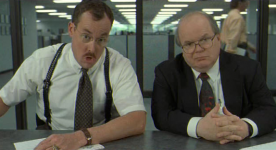I am slightly too young to remember telephone exchanges, but there is something super cool about having a phone number like "PYramid-1235" or whatever. I wish those would come back.We ventured over to Dallas Friday to see Donny Osmond at Fair Park Music Hall. We found a place to eat downtown and then drove over to the concert. My wife had Google directions pulled up; I had no idea where I was. After reading your post I went back and looked at the area. We ate in downtown at a food hall called The Exchange (a reference to telephone exchanges; it's part of AT&T's office complex). Then we drove through downtown to the Deep Ellum district and then to Fair Park. We've been to Fair Park lots of times, though not since the pandemic. And all the previous times we relied on Google to get us there.
My wife plugged in Fair Park and not Fair Park parking, so Google took us right to the building. We previously entered Fair Park at Gates 5 or 6 which takes you to the parking lots inside the Fair Park perimeter, southeast of the Music Hall. But we ended up just north of the music hall, at saw Gate 4. There was no car entrance at Gate 4, just pedestrians. So we randomly followed another car which turned onto Exposition Ave. and into a commercial parking lot. We parked there; it was $17 to pay online. It was fine. The nice thing was when the show was over, the parking lot exited to First Ave. which takes you directly to the I-30 ramps, east and west, and we got out of there much more quickly then we did when we parked inside Fair Park. There's a ton of cars inside the perimeter and just a few lanes going out.
So because we got lost by not searching for the correct location, we found a better place to park and if we go there for shows in the future we'll save a lot of time.
Can I really call up BEechwood 45789 at any time?
Back in the early 90's, I knew every area code, but there are so dang many nowadays. I do know that the area codes with a "0" in the middle were assigned to states with only one area code, whereas the "1" as the second digit meant the state had more than one area code. Big cities got the "lower" codes (like Manhattan, 212, and LA, 213, etc.) because it took less time to dial those on the actual rotary dial.
It wasn't until the late 90's that the requirement that area codes have a second digit or 0 or 1 went out the window.
On a related note, I wonder if that is why so many businesses have phone numbers ending in "00?" Perhaps a throwback to the lettered exchange era?
Jim







